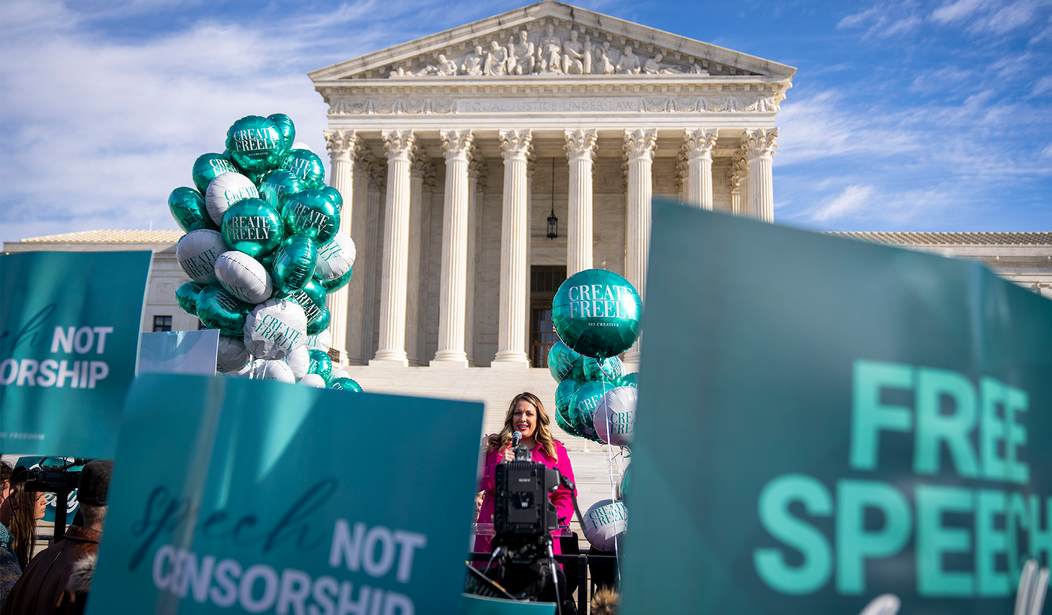Eric A. Sell is Associate Counsel and the Shillman Legal Fellow at the Center for American Liberty, a non-profit law firm dedicated to preserving free speech and civil liberties.
The recent debacle at Stanford Law School involving a federal judge and an angry crowd of students sparked a brushfire of debate and commentary throughout the legal community. Sadly, the reaction from many is more evidence that the state of free speech at American law schools is only getting worse.
For those unaware, dozens of sign-waving protesters heckled and shouted down Fifth Circuit Judge Kyle Duncan while he was speaking on campus to the local student chapter of the Federalist Society. Protesters accused him of heinous acts like beating his wife, killing people, and expressing a “hope that [his] daughters get raped.” Yet, despite the vile nature of the insults lobbed at the judge, many liberal legal luminaries were quick to paint him as the villain of the story.
Calling these opinions absurd is perhaps a bit too charitable. Videos of the event show a packed room of student protesters holding signs with crude messages on them, relentlessly hurling invectives at Duncan throughout his remarks. The protesters’ objections touched on things like preferred pronouns for transgender inmates and voting rights for minorities. The insults lacked both accuracy and nuance and many of the protesters didn’t seem to care what the judge had to say in his defense.
Throughout the tirade, several Stanford Law School administrators in the audience sat quietly by and allowed the crowd to air their grievances. This of course meant Duncan’s speech could not proceed as planned. The students were in plain violation of the university’s anti-disruption policy, yet these administrators did nothing.
Eventually, the associate dean for Diversity Equity and Inclusion, Tirien Steinbach, took the podium from Judge Duncan to address the crowd. During her minutes-long interlude into the event, Dean Steinbach unloaded her own personal enmity onto Judge Duncan (via a prepared speech), criticizing him for “harming” students by “denying [their] humanity.”
While Steinbach informed the protesters that disruption violated school policy and that Duncan had the right to speak, she also made clear that she welcomed the chaos that unfolded. She even questioned whether the “juice” of inviting Duncan to Stanford “was worth the squeeze” of students’ hurt feelings. This speech had a tone similar to an email Steinbach sent to the student body the night before the event, which read more like a call to arms than a request for proper decorum.
Yet, after all of this, some insist that Judge Duncan is the bad guy. The reason: He had the temerity to stand up to the mob. Duncan engaged with the protesters, pushing back on what he viewed as inaccurate or misleading characterizations of his work on the bench, using pointed language to defend himself.
The main argument from Duncan’s critics is that his reaction to the protest was not befitting of a federal judge. Basically, the words he used in describing the crowd’s conduct were too on the nose. Some even argue Duncan welcomed the protest for his own political gain. The whataboutism is striking.
Yes, Duncan’s reaction wasn’t what we usually hear from a federal judge. But it was human, nonetheless. He adopted a defensive posture in the face of a volatile crowd bent on insulting and demeaning him. To fault the judge for this is Monday morning quarterbacking at its worst.
Judge Duncan could have sat in silence and let the crowd insult him and his family. Or he could have gotten up and left the event. But either would have been a victory for the mob, which Judge Duncan was right to deprive them of by staying and engaging.
And while it’s unfortunate that a federal judge had to endure the wrath of immature law students, the Stanford Federalist Society and its members are the real victims here. The students who wanted a productive and insightful conversation with a respected and influential member of their profession were deprived of this opportunity by an angry group of their peers who think using crude language and insults is a powerful form of persuasion. By standing up to a petulant crowd, Judge Duncan stood up for the students who invited him to speak. Staying silent or walking away would have been a disservice to them.
Robust and open debate on campus—particularly at a law school with a reputation like Stanford’s—is something any tolerant society should promote and preserve. Shouting down those we disagree with doesn’t advance this goal. Winning them over with persuasive arguments does. Perhaps not all of the protesters sought to silence the judge. But for many, this was clearly their only goal.
If Judge Duncan hadn’t stood up for himself, and for the Stanford Federalist Society, the censorship mob would have won. For the sake of free expression and open debate on campus, we should all be thankful he did.













Join the conversation as a VIP Member